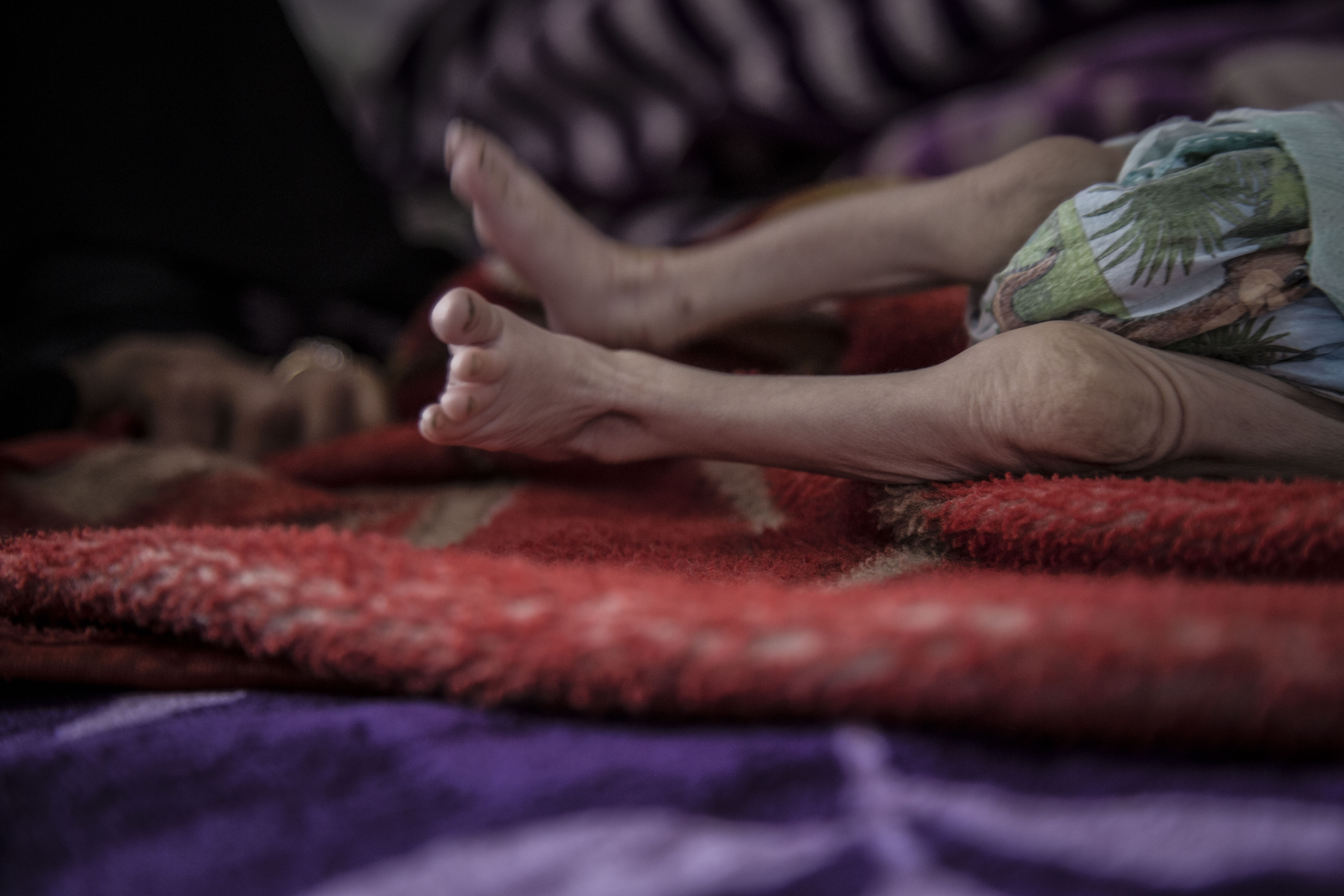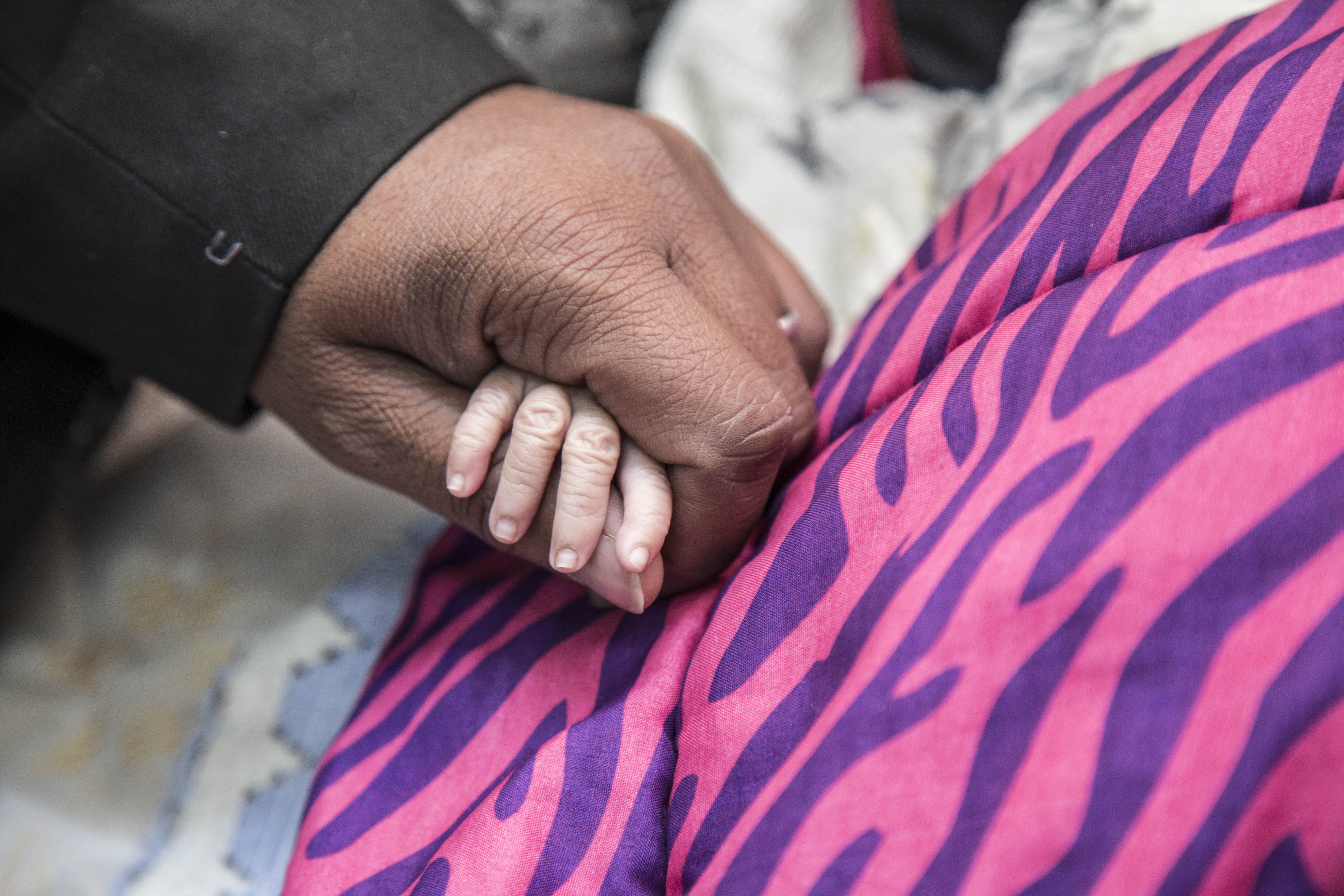President Donald Trump’s decision to veto a Congressional resolution to end American support for the Saudi war in Yemen was condemned Wednesday by humanitarian organizations, activists, and the bill’s leading Congressional proponents.
“If [Trump] was truly concerned about civilian life, he would first and foremost ensure that the U.S.-supported Saudi-led coalition stop breaking the laws of war and depriving millions of Yemenis of life-saving assistance,” Ole Solvang, policy director at the Norwegian Refugee Council, said in a statement.
The resolution, passed with significant bipartisan support on April 4, marked the first time Congress had ever used the War Powers Act – passed in 1973 – to try to end U.S. participation in a war.
Yemen – one of the poorest countries in the region – is on the brink of famine and is home to what the United Nations has called the world’s worst humanitarian crisis.
At least 85,000 children under the age of five have died of disease or starvation since the outset of the conflict, and millions more are at risk as the war grinds on into its fifth year.
The U.S. has played a key role in supporting the Saudi-coalition, which intervened in the conflict in an effort to oust Houthi rebels from power and restore the country’s previous government. The coalition’s bombing campaign in Yemen has been condemned by the U.N. for indiscriminately targeting civilians and civilian infrastructure, resulting in possible war crimes.
Help, Not Bombs
In his statement Wednesday, Solvang said U.S. weapons have killed and maimed thousands of civilians, and that Washington has “demonstrated little commitment to accountability.”
“More bombs and weapons in Yemen will only mean more suffering and death,” the director said. “By providing such extensive military and diplomatic support for one side of the conflict, the United States is deepening and prolonging a crisis that has immediate and severe consequences for Yemen, and civilians are paying the price.”
Bernie Sanders – a leading 2020 candidate for the Democratic presidential nomination and the sponsor of the resolution in the Senate – said he was disappointed but not surprised by the veto.
“The people of Yemen desperately need humanitarian help, not more bombs,” the Senator said.
“I am disappointed, but not surprised, that Trump has rejected the bi-partisan resolution to end U.S. involvement in the horrific war in Yemen.”
The passing of the resolution earlier this month was the culmination of a long, hard-fought, and sometimes emotionally charged campaign from the resolutions leading proponents, including Sanders, Rep. Ro Khanna, Senator Chris Murphy, and Republican Senator Mike Lee.
Though the resolution passed overwhelmingly in the Democratic-controlled House of Representatives, 247-175, proponents of the bill likely don’t have enough votes to override the veto, which requires the support of two-thirds of both chambers.
Khanna, the sponsor of the bill in the House, condemned the veto as a betrayal of Trump’s campaign promises to wind back U.S. military involvement in overseas wars.
“From a president elected on the promise of putting a stop to our endless wars, this veto is a painful missed opportunity,” he said.
Khanna, however, said the resolution was only the beginning of Congress’ efforts to “re-examine the U.S.-Saudi relationship.”
‘Extremely Dangerous Implications’
Following the final vote in Congress, a group of bi-partisan representatives tried in vain to convince Trump to sign the bill, imploring him in a letter not to veto it. The group also tried to schedule a sit-down meeting with the president, but were rejected.
Rand Paul, one of the resolution’s most vocal Republican supporters, said after the veto he will continue his efforts to end American involvement in Yemen.
“I have been working to end this war and helped led (sic.) the fight in Congress,” the Senator said. “I will keep up the fight to end this and all of our other seemingly endless wars.”
The Yemen Peace Project, a leading U.S. advocacy organization that campaigned for the resolution, said in a statement that the Trump’s justification for the veto “has extremely dangerous implications that Congress must urgently address.”
In a statement explaining the veto, Trump reiterated the administration’s long-standing claim that the U.S. is technically “not engaged in hostilities in or affecting Yemen.”
YPP said that claim is “erroneous” and “an apparent effort to rewrite the text of the War Powers Resolution of 1973.”
Further, the group blasted Trump for “aiding and abetting the Saudi-led coalition’s war crimes.”
Other major advocacy and humanitarian groups including Oxfam, Win Without War, and Peace Action also strongly condemned the veto.
More on the Subject
“The violence will have to stop. Unless it does, this country will become a country of living ghosts,” Abeer Etefa, the Senior Spokeswoman for the United Nations World Food Program, told The Globe Post.
US Senate to Vote on Yemen War as Near-Apocalyptic Disaster There Looms



























